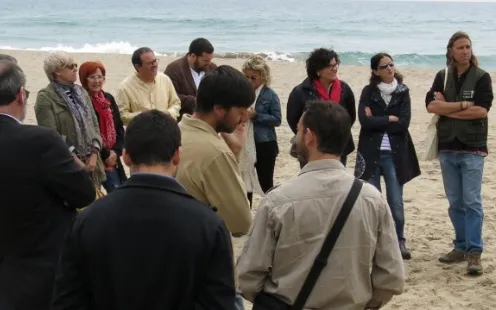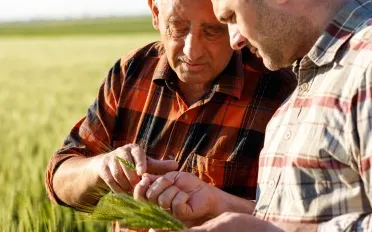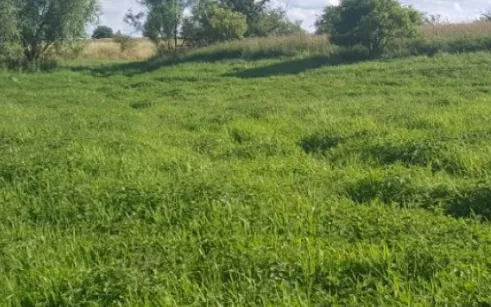ELCN is a European network aiming to expand nature conservation beyond the protection done by administrations and engaging citizens and private groups in conservation activities.
If you check the ELCN website, you will notice there are many private land conservation initiatives active in Europe. Contrary to other parts of the world, where private land conservation is linked to large fortunes, in Europe there is a different approach. We can find community-based initiatives launched by citizens that allow them to pro-actively protect the land and environment around them.
In Finland, more than 60,000 hectares in Lapland are conserved thanks to voluntary agreements with owners of forestland. These agreements have been signed since 2008, combining an active management of the land with nature conservation criteria. Individuals who are keen to conserve forest habitats with a high ecological value are behind this, granting permanent protection to their forests.
In Sicily, the Italian environmentalist association Lipu is in charge of the Salina di Priolo Park and carries out conservation tasks in this protected area. Also in Sicily, the Longarini wetlands in the south-east of the island is now protected after it was purchased by the German private foundation Stiftung Pro Artenvielfalt (Pro Biodiversity Foundation), thanks to the donations made by more than 29,000 German citizens and the work of a group of around 30 Sicilian environmentalist volunteers.
In Ireland, some 22,000 hectares of farmland are protected by what is known as the Burren model, whereby farm owners agree to use agricultural practices that are beneficial for the environment, and especially to preserve land with a high natural value. There is a similar project going on in the Aran Islands, west of Ireland, where farmers use agricultural practices that are beneficial for nature.
In Germany, companies like iaealo.de have purchased lands to turn them into nature reserves and manage them as such, in the hope that these lands will retain their economic value. The assessment of this case is done in collaboration with NABU, one of the most veteran and popular environmental NGOs in Germany, established in 1899.
The project is being coordinated by NABU (Germany), and besides Eurosite, other project partners are: Xarxa de Custòdia del Territori (XCT) (Catalonia), Natuurpunt (Belgium), Montis (Portugal), Fundacion Biodiversidad (Spain), Fundatia ADEPT (Romania), ELY Centre Lapland (Finland), IMA Europe (EU) and WWF Oasi (Italy).
ELCN was created as a means to test the innovative nature conservation initiatives, and to disseminate the tools and their application in different territories, as well as to identify the legal limitations or political obstacles. The network aims to become a space to exchange experiences and disseminate knowledge across Europe. Its activity is structured in pilot actions looking at the integration of spaces into the Natura 2000 Network and the replication of experiences. To encourage private conservation, the network also aims to acknowledge conservation experiences done by individuals, organizations or companies creating the IMAEurope Biodiversity Award.










Add new comment